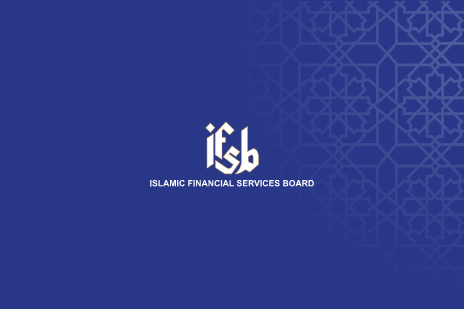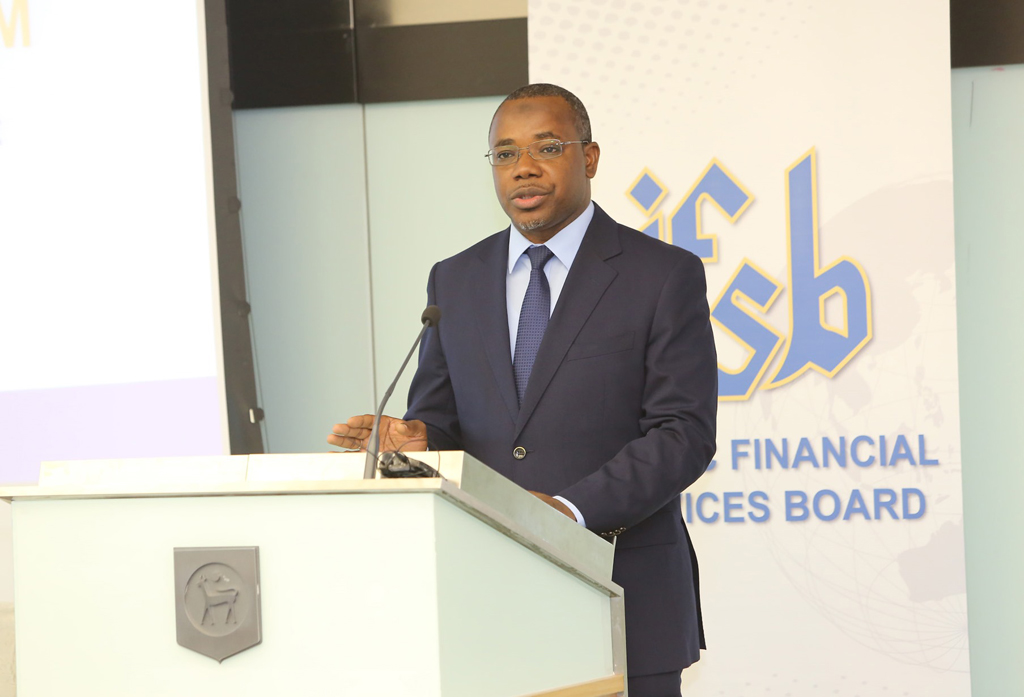يستضيف البنك المركزي المصري فعاليات الاجتماعات السنوية لمجلس الخدمات المالية الإسلامية للعام 2016. المشاركة في كل من الاجتماع الــ 28 للمجلس الأعلى، والاجتماع الــ 14 للجمعية العمومية، ومنتدى الاستقرار المالي الإسلامي الــ 13، وحفل العشاء الترحيبي، تتم من خلال الدعوة فقط. مزيد من المعلومات يمكنكم الاستفسار عن هذه الفعاليات من خلال التواصل مع أعضاء الأمانة العامة حسب الآتي: 1) اجتماع المجلس الأعلى، والجمعية العمومية، وحفل العشاء الترحيبي: السيدة/ نور خير النساء محمد زواوي (البريد الإلكتروني: [email protected]) 2) منتدى الاستقرار المالي الإسلامي: السيدة/ يزمين عزيز ([email protected]) كما سوف تنعقد الفعاليات الأخرى المصاحبة للاجتماعات السنوية لعام 2016 كالآتي: 1) ندوة مجلس الخدمات المالية الإسلامية حول أسواق رأس المال الإسلامية : إيدا شافيناز عبد الملك ([email protected]) 2) المحاضرة العامة الثامنة حول السياسات المالية والاستقرار : إيدا شافيناز عبد الملك ([email protected]) 3) الملتقى الدوري لأعضاء المجلس والجهات الفاعلة في صناعة التمويل الإسلامي: السيد إفران ترمزي (البريد الإلكتروني: [email protected]) لقطات من الحدث The IFSB organised four Side Events in conjunction with the IFSB Annual Meetings 2016 on 10 – 12 April 2016 in Cairo, Egypt, hosted by Central Bank of Egypt. The first event was a Seminar on Islamic Capital Market, held on 10 April 2016. Themed “Supporting Development through Sukūk: Prospects and Initiatives”, the Seminar aimed to provide an interactive environment enabling speakers and participants to explore the prospective role of Sukūk in social and economic development through the aforementioned roles. The Seminar offered perspectives of Sukūk that revolved around the key challenges. Mr. Gamal Negm, Deputy Governor, Central Bank of Egypt and Mr. Jaseem Ahmed, Secretary General of the IFSB delivered the opening and welcoming speeches respectively. The keynote address was delivered by H.E. Sherif S. Samy, Chairman of the Egyptian Financial Supervisory Authority. Fourteen chairpersons and speakers from among regulators and market players sector discussed the following issues at the Seminar:- Development of the Sukūk Sector: Legal and Regulatory Considerations Panel Discussion – Sukūk for Budgetary and Financial Sector Support: Structures and Country Examples Sukūk for Infrastructure Financing: Prospects and Case Studies Panel Discussion on Building Synergies for Sukūk Issuances Over 100 delegates from 16 jurisdictions among the IFSB member and non-member organisations – representatives from market players, regulatory bodies, international agencies as well as academia and other interested parties from the public attended this Seminar. On 11 April 2016, the IFSB organised its 8th Public Lecture on Financial Policy and Stability. The Lecture, delivered by Dr. Sami Al Suwailem, Head, Financial Product Development Center, Islamic Development Bank carried the theme, Morality, Rationality and Financial Stability. Mr. Jaseem Ahmed and Mr. Tarek Fayed, Sub Governor, Central Bank of Egypt delivered the opening and welcoming speeches. The Lecture saw the attendance of 100 participants from among the IFSB members, regulatory and supervisory bodies, as well as the government, private, legal and educational sectors in Egypt. The Public Lecture was followed by a Members and Industry Engagement Session which aimed to provide a platform for the IFSB members and greater financial community an insight and update into the work of the IFSB, its relevance to the development of the global industry, and the role the stakeholders (members and non-members) can play in this development. The session was attended by 50 participants consisting of the IFSB members and the Egyptian local financial community, where Mr. Tarek Fayed delivered the Opening Remarks. The Opening Remarks was followed by a presentation titled, Global Outlook of Islamic Finance, by Mr. Jaseem Ahmed, Mr. Zahid Ur Rehman Khokher, Assistant Secretary-General of the IFSB also delivered a presentation titled, Stakeholders Engagement in Supporting the Sound Development of Islamic Financial Services Industry. The 13th Islamic Financial Stability Forum was held on 12 April 2016, after the IFSB Council and General Assembly meetings. The topic of this year’s IFSF was Consumer Protection in Islamic Finance. Professor Volker Nienhaus, Former President, University of Marburg, Germany, and IFSB Consultant was the speaker of the 13th IFSF and presented the topic, Consumer Protection in Islamic Finance. His presentation, which is based on an IFSB Working Paper series, Financial Consumer Protection in Islamic Finance stated that most of the issues in consumer protection covers both conventional and Islamic segments of the financial system. The discussants were Ms. Nariman Abdulla Kamber Al Awadhi, Chief Manager, Consumer Protection Unit, Central Bank of the United Arab Emirates and Mr. Khairul Nizam, Chief Operating Officer, Finance Accreditation Agency, Malaysia. Programme - Event Session(s) التاريخ الوقت موضوع الورشة Day 1 10/04/2016 SEMINAR ON ISLAMIC CAPITAL MARKET (OPEN SESSION) 08:30 - 09:30 Registration 09:30 - 10:30 Welcoming Remarks and Keynote 10:30 - 11:00 Coffee break 11:00 - 12:15 Session 1: Development of the Sukūk Sector: Legal and Regulatory Considerations As one of the fastest growing segments of the Islamic financial services industry, the Sukūk market poses important legal and regulatory challenges. One of the most important legal issues of the Sukūk market is the different legal treatments for asset-based and asset-backed Sukūk structures and their effects on risks, particularly legal risk, that are endogenous to a particular Sukūk issuance. Furthermore, in view of the potential multi-national investor base and the global appeal of these instruments, the standardisation of the structures and processes along with the legal and tax treatment in different jurisdictions, the set-up of effective mechanisms for dispute resolution, and enforceability of the Sukūk contracts are also important issues that feature as determinants of the attractiveness of the instrument and jurisdiction. Apart from the legal issues, the provision of a sound regulatory and supervisory regime is critical in order to ensure that the Sukūk instruments comply with key consumer protection aspects as well as operate in an environment that limits the exposure to system-wide risks. 12:15 - 13:30 Session 2: Sukūk for Budgetary and Financial Sector Support: Structures and Country Examples Since the GFC, the share of Sukūk issued by sovereigns, quasi-sovereigns (Ministries/Central Banks, etc.) and government-related entities (GREs) has risen noticeably from 2009 onwards, accounting for more than two-thirds of issuances in the primary market. These funds have been raised to support a variety of state budgetary needs including


